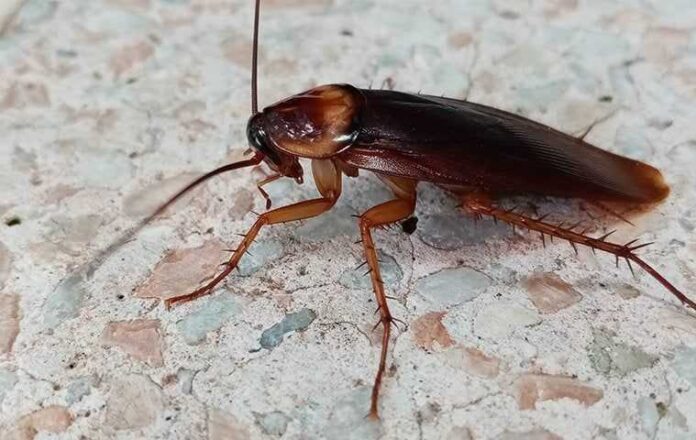Flying cockroaches, often evoking a mix of fascination and trepidation, represent a unique and intriguing aspect of the insect world. In this detailed exploration, we unravel the mysteries behind these airborne creatures, shedding light on their biology, behaviors, and the ecological role they play.
Read more about Earwig Bites
Contents
Understanding the Biology of Flying Cockroaches
Wings of Adaptation
Contrary to their crawling counterparts, flying cockroaches possess well-developed wings that enable them to navigate the air with surprising agility. Delving into the anatomy of these wings unveils the evolutionary adaptations that have allowed cockroaches to take to the skies.
Flight Mechanisms
The flight mechanisms of flying cockroaches are a marvel of biological engineering. Exploring the intricacies of their wing movements and the aerodynamics involved provides valuable insights into how these insects have mastered the art of controlled flight.

Behaviors in Flight
Flying cockroaches are primarily nocturnal, taking to the air under the cover of darkness. Understanding their behavior during flight, such as their navigation patterns and search for food, adds depth to our appreciation of their survival strategies.
Responsive Reflexes
In flight, cockroaches exhibit remarkable reflexes that enable them to avoid obstacles and predators. Examining these reflexes sheds light on the sensory adaptations that contribute to their success in both the air and on the ground.
Ecological Importance
Efficient Scavengers
Flying cockroaches play a vital role in ecosystems as efficient scavengers. Their ability to consume decaying matter contributes to nutrient recycling, highlighting their ecological importance in maintaining a balanced and healthy environment.
Prey and Predators
Exploring the dietary habits of flying cockroaches reveals their role as both prey and predators. Understanding the delicate balance they maintain in the food chain emphasizes their significance in sustaining biodiversity.
Myths and Realities
Dispelling Misconceptions
Despite their essential ecological role, flying cockroaches are often surrounded by myths and misconceptions. Addressing these misconceptions fosters a more accurate understanding of their behavior and dispels unnecessary fear.
Adaptability to Urban Environments
Flying cockroaches showcase a remarkable adaptability to urban settings, thriving in diverse environments. Examining their ability to coexist with humans offers valuable insights into their resilience and survival strategies.
Coping with Flying Cockroach Encounters
Prevention Strategies
Implementing effective prevention strategies can help minimize encounters with flying cockroaches. Exploring these strategies, such as proper waste management and sealing entry points, provides practical solutions for homeowners.
Pest Control Measures
In cases where infestations occur, understanding effective pest control measures becomes crucial. Exploring environmentally friendly and targeted approaches ensures a balanced approach to managing flying cockroach populations.
Conclusion
Exploring the phenomenon of flying cockroaches unravels a tapestry of biological marvels, ecological significance, and practical insights for coexistence. By delving into their world, we gain a deeper appreciation for these creatures as integral contributors to the intricate web of life.



